Black History Month 2020: Recent Acquisitions
To commemorate Black History Month in bookish fashion, we present a selection of noteworthy recent arrivals that explore the depth of African-American history and culture. LIterature, art, politics, folklore, cooking, biography, memoir, activism and protest, poetry, performing arts—there is something for almost every readers' interest. Children's and Young Adult books selected by our children's librarians are featured below. Below that, a list of even more recent arrivals. Click here to see last year's blog post.
They Were Her Property: White Women as Slave Owners in the American South | Stephanie E. Jones-Rogers
Proving that our understanding of slavery is still limited and riddled with our own prejudices and pre-conceived ideas, Stephanie E. Jones-Rogers issues this corrective about the ownership roles that white women occupied. Earlier scholarship imagined white women as “reluctant actors.” Jones-Rogers, a professor at UC Berkeley, demonstrates that slave owning women in the South were ubiquitous, quick to defend the institution, and profiting from its practice. “This scrupulous history makes a vital contribution to our understanding of our past and present,” writes Parul Sehgal in the New York Times. The Nation called the book “definitive” and reviews consistently and enthusiastically praised the prodigous, groundbreaking research that went into it.
Black Radical: the Life and Times of William Monroe Trotter | Kerri Greenidge
This is the first major biography of Trotter (1872-1934) in half a century. As an outspoken, pioneering civil rights activist and editor of the Boston-based black weekly newspaper The Guardian, Trotter was an early and important inspiration to W.E.B. DuBois. His influence extends to the early founding of the NAACP (he split with them over white leadership and financial support) and the organization of civil rights protest marches. His uncompromising approach to race relations and civil rights in the U.S. would provide a blueprint for subsequent leaders. From being the first African-American elected to Phi Beta Kappa at Harvard, to confrontations with President Woodrow Wilson, and his calls to ban Birth of a Nation, Trotter led an eventful life. The New York Times notes that “Greenidge, a historian at Tufts University, is as interested in Trotter’s context in the post-Reconstruction North as she is in the man himself” and does not shy away from “convey[ing] the more vexing elements of his personality.”
A Black Women's History of the United States | Daina Ramey Berry & Kali Nicole Gross, eds.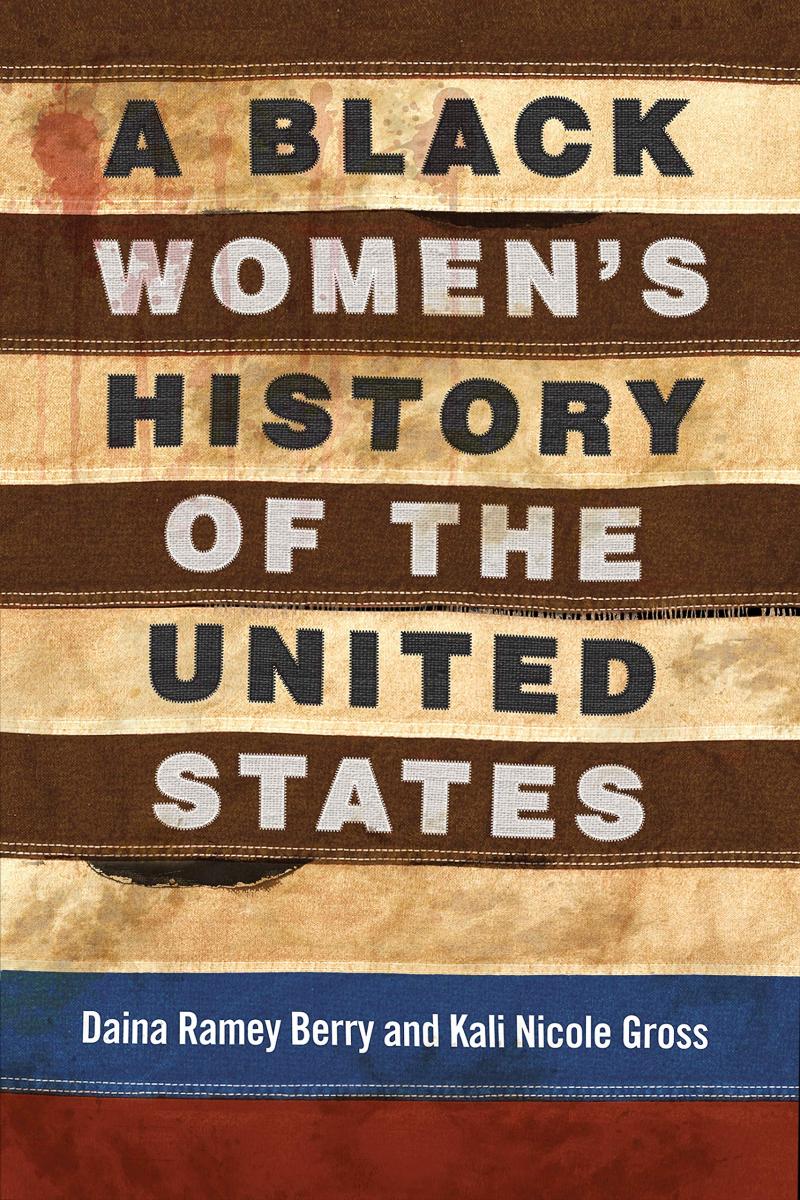
Kirkus: Berry (Professor of History and associate dean of the Graduate School at University of Texas, Austin) and Gross (Professor of History, Rutgers University) “persuasively argue that black women have ‘significantly shaped’ our nation and fought for their rights throughout every period of American history. Yet their contributions often have been overlooked or underappreciated…the authors offer a selective but wide-ranging search-and-rescue mission for black female activists, trailblazers, and others who have left a mark.” The book proceeds chronologically, and “the result is a narrative that highlights both setbacks and achievements in many spheres: sports, business, education, the arts, military service, and more.”
The World's Fastest Man: The Extraordinary Life of Cyclist Major Taylor, America's First Black Sports Hero | Michael Kranish
Before Althea Gibson and Jackie Robinson, and even before Jesse Owens and Jack Johnson, there was Major Taylor. At the end of the 19th century, when cycling was among the most popular spectator sports, Taylor became a world champion in the one mile sprint. His prowess and fame didn’t spare him from the animosity of his contemporaries or the Jim Crow laws that governed American life. This remarkable work of history puts Taylor’s name back where it belongs, among the pioneers in all of sport.
Tacky's Revolt: The Story of an Atlantic Slave War | Vincent Brown
This new book from Harvard U. Press examines a large slave uprising in Jamaica in 1760 that reverberated throughout the British Atlantic. Vincent Brown casts the rebellion as part of a longer, larger struggle, not an isolated act of rebellion but one of many battles in an ongoing war between slavers and the enslaved. Henry Louis Gates, Jr. praises “Brown’s brilliant analysis" and the New Yorker commends his way of "making a coherent whole out of the diffuse, chaotic attempt to wage war on enslavers."
Overground Railroad: the Green Book and the Roots of Black Travel in America | Candacy A. Taylor (ebook available)
Distributed by mail order and sold by black-owned businesses from the late 1930s through the late 1960s, the “Green Book” listed black-owned (or black-friendly) businesses, helping black tourists navigate racial minefields while traveling in the United States. The L.A. Times: “Taylor assiduously retraces the ‘Green Book’s’ history [and spent] three years scouting nearly 5,000 locations named in the guide, [in] a vivid, multi-voiced travelogue that draws on interviews, archival documents and newspaper accounts. Historic photographs provide context.”
Dapper Dan: Made in Harlem | Daniel Day
In case his name is unfamiliar to you, Daniel Day, aka “Dapper Dan,” became famous operating an eponymous custom clothing store in Harlem that outfitted athletes and hip hop stars, as rap music was beginning to make its way to the mainstream. He famously reworked the logo-ed leather of Gucci, Louis Vuitton, and the like, into extravagant creations for his famous clientele. Though one might expect celebrity name dropping and glamourous stories in Dapper Dan’s memoir, Day spends much of the book chronicling his beloved Harlem in his younger years.
Race for Profit: How Banks and the Real Estate Industry Undermined Black Homeownership | Keeanga-Yamahtta Taylor
Race for Profit uncovers how, in the 1970s, regulators and the real estate industry conspired to continue exploitative real estate practices long after housing discrimination was banned—a practice that Taylor dubs “predatory inclusion.” Taylor is an activist and scholar and the author of From #BlackLivesMatter to Black Liberation. Race for Profit was longlisted for the National Book Award and Library Journal calls it a “masterly exposé of the political economy of the racially bifurcated market.”
The Selected Letters of Ralph Ellison | edited by John F. Callahan and Marc C. Conner 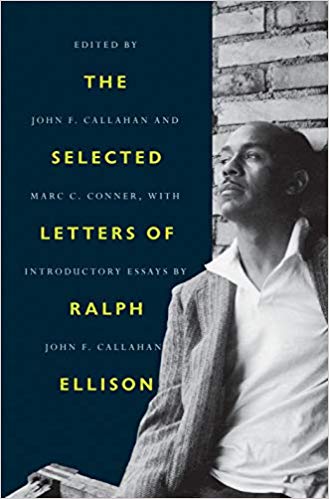
Bookforum: "Ellison’s letters vibrate with striking imagery, flinty repartee, shrewd literary insight, and bountiful reverie." This hefty collection includes letters to Albert Murray, Robert Penn Warren, Richard Wilbur, Saul Bellow, Richard Wright, Kenneth Burke, Stanley Edgar Hyman, and more. The letters cover a lot of ground: the state of literature, the beauty of Henry James's prose, jazz, the struggles of African Americans, writing that elusive second novel, and the challenges facing those attempting to prepare pigs' feet while in Italy.
Hitting a Straight Lick with a Crooked Stick: Stories from the Harlem Renaissance | Zora Neale Hurston (edited with an introduction by Genevieve West)
Genevieve West’s research and scholarship on Zora Neale Hurston is incredibly refreshing. West has labored to unearth and republish eight of Hurston’s early short stories that have been buried in archives for nearly a century. And the stories do not disappoint! The richness and complexity that Zora has long been known for are present throughout this collection. I particularly loved Zora’s story “Sweat” and West’s analysis of the gender politics raised in the tale. The question of a community’s responsibility to defend women from gender-based violence sits at the center of “Sweat," and Zora challenges readers to reflect on how to reimagine our collective responses to violence and find new ways of holding those who cause harm accountable.
Romance in Marseille | Claude McKay
Speaking of newly published Harlem Renaissance fiction, Romance in Marseille was recently unearthed in an archive, where it sat for close to ninety years. (McKay’s editor at the time thought it was likely too shocking to sell.) The novel traces the adventures of a rowdy troupe of dockworkers, prostitutes, and political organizers, gay and straight, in Marseille during the Jazz Age. The New York Times recently noted that “the book’s themes — queerness, the legacy of slavery, postcolonial African identity — are among those at the forefront of literature today… it still feels radical.” As scholars take a more expansive look at the Harlem Renaissance—increasingly taking in issues of sexuality, of gender, identity, and class—the publication of McKay’s complex novel is well-timed. In 2017, another previously unpublished McKay novel, Amiable with Big Teeth, was brought out to wide acclaim.
Notes from a Black Woman's Diary: Selected Works of Kathleen Collins
Poet, playwright, writer, pioneering independent film director, civil rights activist, and educator, Kathleen Collins died largely unknown in 1988, at the age of 46. In the 21st century, however, her work has been rediscovered with heaps of critical praise. Notes from a Black Women’s Diary features sketches, journal entries, letters, short stories, plays and screenplays, and follows the revival of her 1982 film “Losing Ground’ in 2014 and a collection of stories, Whatever Happened to Interracial Love? written in the 1960s and published in 2015. The New York Times praised “her voice and vision [as] “idiosyncratic and pitiless, combining mischief and crisp authority, formal experimentation and deep feeling” as well as the “sleekness of her sentences.”
Wilmington’s Lie: The Murderous Coup of 1898 and the Rise of White Supremacy | David Zucchino
In 1898, Wilmington, North Carolina was an example of a successful Reconstruction city complete with a multiracial government. Many white people bristled at this new arrangement, and several began plotting to reverse what they termed “Negro domination.” Led by prominent newspapermen and Confederate generals, the white supremacist Democrats suppressed the black vote and stuffed ballot boxes to win control of the state legislature on November eighth. Two days later, more than 2,000 heavily armed men marched through town, terrorizing women and children, and shooting at least sixty black men dead in the streets and banishing others. Long remembered by the citizens of Wilmington as a race riot, Zucchino corrects the record, describing the plot that disrupted an election and a town overrun by a racist mob.
Educated for Freedom: The Incredible Story of Two Fugitive Schoolboys who Grew up to Change a Nation | Anna Mae Duane
A dual biography of James McCune Smith (1813–1865) and Henry Highland Garnet (1815–1882), two men born into slavery and educated at the Mulberry Street New African Free School in New York City. Smith became the first African-American to hold a medical degree and Garnet became a minister and famous orator. Both would go on to travel the world, meet Revolutionary War heroes, publish in medical journals, address Congress, and speak before cheering crowds of thousands. Their story reveals the formidable threats 19th century America posed to young Africans-Americans attempting to educate themselves, and the debates over the future of America’s black population that raged in the States.
Love & Marriage in Early African America (Frances Smith Foster, ed.)
An acclaimed collection of folklore, rhymes, songs, poems, letters, lectures, sermons, short stories, memoirs, etc.—new to us, but published in 2007. The material spans 100 years from the slavery era to the 1920s. Deep scholarly essays provide context.
Zora and Langston: A Story of Friendship and Betrayal | Yuval Taylor 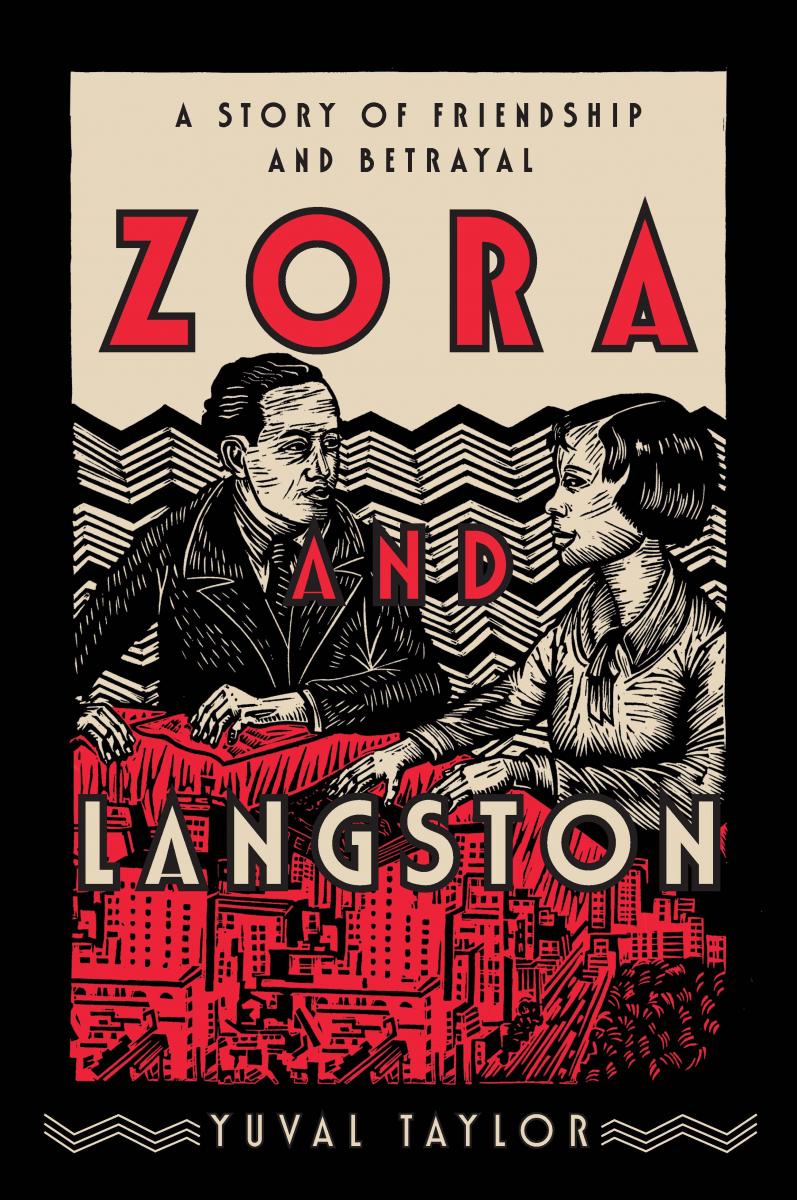
This widely praised book chronicles the friendship and feuds of these two giants of the Harlem Renaissance. Hurston and Hughes were close friends and occasional collaborators from 1925 until a bitter falling out in 1931. At the center of this book is their relationship with an intriguing and controlling patron named Charlotte Mason, also known (by her own insistence) as "Godmother."
Stolen: Five Free Boys Kidnapped into Slavery and their Astonishing Odyssey Home | Richard Bell
After Congress banned slave imports from Africa and the Caribbean in 1808, child snatching in Northern states was “frequent, pernicious, and politically significant.” In Stolen, University of Maryland professor Bell uncovers the story of five African-American boys kidnapped from Philadelphia and sold into slavery in Mississippi and Alabama in 1825 (and the eventual miraculous return of three of them to the city and to freedom). Publisher’s Weekly: “Drawing from a wealth of archival materials, Bell paints a harrowing picture of this human trafficking network and the ‘tens of thousands of free black people’ it ensnared. The result is a scholarly work that tells a powerful human interest story.”
Exposing Slavery: Photography, Human Bondage, and the Birth of Modern Visual Politics in America | Matthew Fox-Amato
This book contains an important argument for the early power of the photographic image. Shortly after the arrival of the daguerreotype from France, photography became cheaper and more popular and Americans everywhere sat for portraits, including free and enslaved African-Americans. Fox-Amato argues that the exposure to images of black women and men changed American attitudes about slavery and the humanity of the enslaved. The Wall Street Journal proclaims “No one who reads Exposing Slavery will ever see antebellum and Civil War-era photographs of black Americans in the same way again. Quite apart from the author's thorough research and tight prose, the many accompanying photographs are superlatively reproduced on high-quality paper, making them seem as crisp and striking as the day they were made."
Creating Their Own Image: The History of African-American Women Artists | Lisa E. Farrington
Published in 2005 by Oxford University Press, this is the first comprehensive history of African-American women artists, from slavery to the present day. The author is Chairperson and Professor in the Department of Art & Music at John Jay College. The book received some excellent reviews and was nominated for several awards. I don’t know how we missed this one 15 years ago, but better late than never
Arcana: a Stephen Jonas Reader | edited by Garrett Caples, Derek Fenner, David Rich, & Joseph Torra
Beginning in the 1950s until his untimely death at age 49, Stephen Jonas (1921-1970) was an influential if underground figure of the New American Poetry. A gay, African-American poet of self-obscured origins, heavily influenced by Ezra Pound and Charles Olson, the Boston-based Jonas was a pioneer of the serial poem and an erudite mentor to such acknowledged masters as Jack Spicer and John Wieners, even as he lived a shadowy existence among drug addicts, thieves, and hustlers. Arcana is the first selection of his work to appear in 25 years.
She Came to Slay: the Life and Times of Harriet Tubman | Erica Armstrong Dunbar
Dunbar is the author of the acclaimed 2017 book, Never Caught: The Washingtons' Relentless Pursuit of Their Runaway Slave, Ona Judge. Her latest is a well-researched but accessible illustrated biography of Harriet Tubman—successful conductor on the Underground Railroad, civil rights and women's suffrage pioneer, touring speaker on abolitionism, spy for the Union Army, and a nurse to black soldiers. Kirkus: “this smoothly readable narrative…[is]…perfect for Tubman novices but also enjoyable historical reading for those who already know most of the stories.”
The Cooking Gene: a Journey Through African American Culinary History in the Old South | Michael Twitty
This widely acclaimed work of culinary history looks at regional Southern food through the perspective of our most divisive issue, race. Loosely classed as a memoir, Twitty takes readers on a tour through the south, tracing the roots of his own family, looking closely at race, politics, economics and the history of slavery and examining the question of who “owns” southern cuisine as well as the politics of the origins of soul food, barbecue, and all Southern cuisine. Oh yes, there are recipes, too.
Negrophobia: an Urban Parable | Darius James (introduction by Amy Abugo Ongiri)
Thanks to New York Review Books Classics, this dark comedy about race and racism in America is back in print after twenty-five years. Described as “a mad mix of genres and styles, a novel in the tradition of William S. Burroughs and Ishmael Reed.”
The Fire is Upon Us: James Baldwin, William F. Buckley Jr., and the Debate Over Race in America | Nicholas Buccola
Nicholas Buccola's The Fire Is Upon Us looks at the historic debate between William F. Buckley and James Baldwin in 1965, the same year as the Selma-to-Montgomery marches and the Watts riots. The topic being debated was “The American dream is at the expense of the American Negro” and Baldwin and Buckley approached the debate from very different perspectives, to put it very mildly. The New York Times calls the book “"an acute commentary on a great intellectual prizefight.” The debate is essential viewing and available here.
Force and Freedom: Black Abolitionists and the Politics of Violence | Kellie Carter Jackson 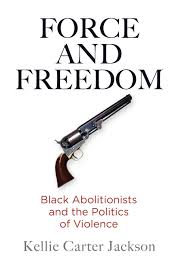
As conditions deteriorated even further for African Americans in the 1850s (Fugitive Slave Act, Dred Scott Decision, etc.), black abolitionist leaders embraced violence as the only means of shocking Northerners out of their apathy and instigating an antislavery war. Force and Freedom provides the first historical analysis exclusively focused on the tactical use of violence among antebellum black activists, through rousing public speeches, the bourgeoning black press, and the formation of militia groups. Published by University of Pennsylvania Press, the book has been widely praised.
Up Jumped the Devil: The Real Life of Robert Johnson | Bruce Conforth and Gayle Dean Wardlow
A giant of American music, blues musician Robert Johnson died at age 27 in 1938. Since his mesmerizing 1930s records were reissued in the 1960s, he has remained a mysterious, captivating figure, with obsessive fans and the subject of far-ranging mythology, misinformation, legend, and rumor (as well as source material for 1000s of excruciating blues performances). Co-authors Bruce Conforth and Gayle Dean Wardlow have over a hundred years’ study of the Delta blues between them, and reviews from the blues cognoscenti say that this book is the most authoritative biography of Johnson we will likely ever have, debunking myths and correcting errors about his life and music that have been perpetuated for years.
Race Against Time: A Reporter Reopens the Unsolved Murder Cases of the Civil Rights Era | Jerry Mitchell
In the 1980s, while reporting for the Jackson, Miss., Clarion-Ledger, Mitchell began investigating unsolved civil-rights-era murder cases, pursuing old leads and uncovering new evidence. His new book focuses on four cases: the assassination of Medgar Evers (1963); the bombing of the 16th Street Baptist Church in Birmingham (1963); the murders of Andrew Goodman, James Chaney and Michael Schwerner (1964); and the killing of Vernon Dahmer Sr., an N.A.A.C.P. activist (1966). The New York Times calls the book “A vivid, quick-paced, accessible account…brave, bracing and instructive…it warrants praise, gratitude and a wide audience.”
YOUNG ADULT
The Crossover | Kwame Alexander; illustrated by Dawud Anyabwile 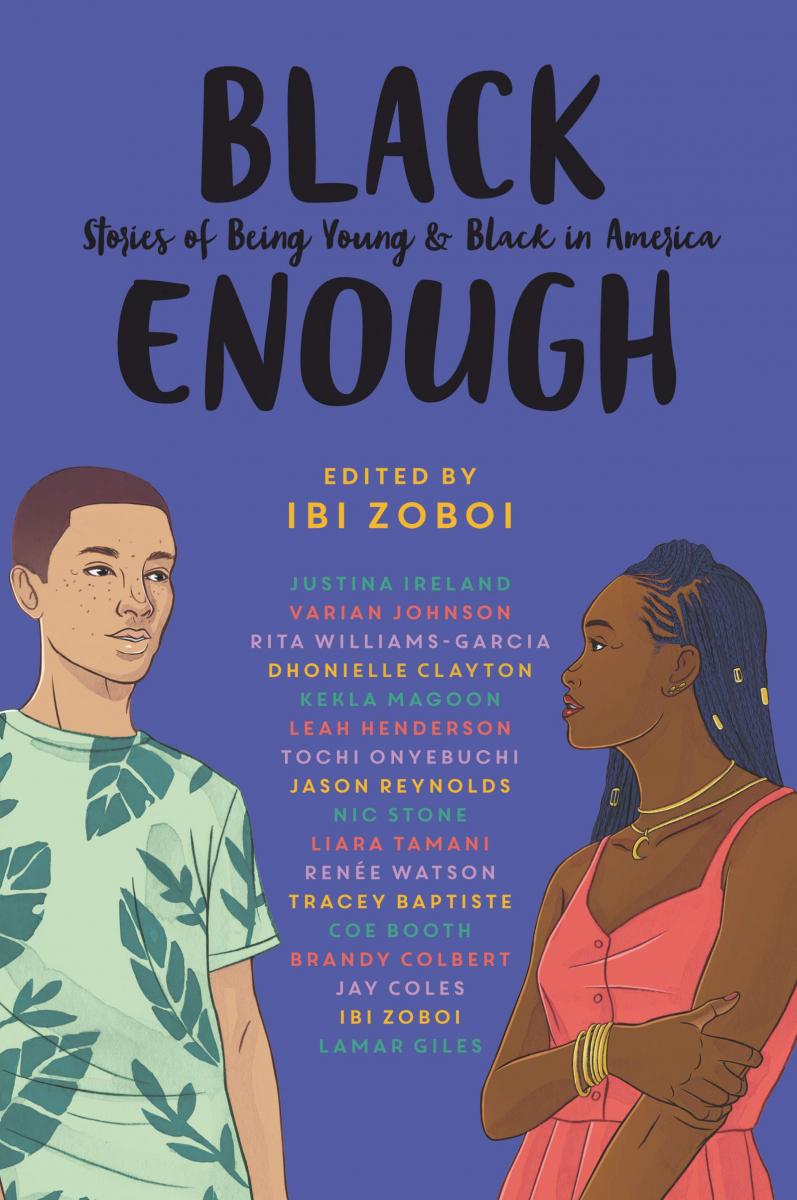
With the Fire on High | Elizabeth Acevedo
Black Enough: Stories of Being Young & Black in America | edited by Ibi Zoboi
Akata Witch | Nnedi Okorafor
As the Crow Flies | Melanie Gillman
Trace | Pat Cummings
On the Come Up | Angie Thomas
CHILDREN'S
New Kid | Jerry Craft
Never Caught, The Story of Ona Judge: George and Martha Washington’s Courageous Slave Who Dared to Run Away | Erica Armstrong Dunbar and Kathleen Van Cleve
The Season of Styx Malone | Kekla Magoon
A Computer Called Katherine: How Katherine Johnson Helped Put America on the Moon | Suzanne Slade
The Quilts of Gee’s Bend | Susan Goldman Rubin 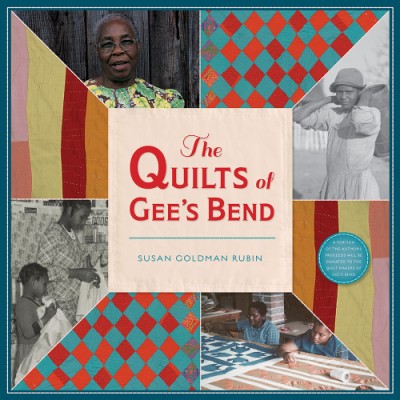
Dactyl Hill Squad, Book One | Daniel José Older
The Unsung Hero of Birdsong, USA | Brenda Woods
Young, Gifted and Black: Meet 52 Black Heroes from Past and Present | Jamia Wilson, illustrated by Andrea Pippins
MORE RECENT ARRIVALS
- African Americans and Africa: a new history | Nemata Amelia Ibitayo Blyden
- The yellow house: a memoir (2019 National Book Award winner!) | Sarah M. Broom
- A son's return: selected essays of Sterling A. Brown | edited with a foreword by Mark A. Sanders
- Mahalia Jackson and the Black Gospel Field | Mark Burford
- Franchise: the golden arches in Black America | Marcia Chatelain
- Black refractions: highlights from the Studio Museum in Harlem | Connie H. Choi
- The Thibodaux massacre: racial violence and the 1887 Sugar Cane Labor Strike | John DeSantis ; foreword by Burnell Tolbert
- Black lives 1900: W.E.B. Du Bois at the Paris exposition | edited by Julian Rothenstein ; with an introduction by Jacqueline Francis and Stephen G. Hall
- Nobody turn me around: a people's history of the 1963 March on Washington | Charles Euchner
- A haven and a hell: the ghetto in black America | Lance Freeman
- The Last Negroes at Harvard | Kent Garrett
- Stony the road: Reconstruction, white supremacy, and the rise of Jim Crow | Henry Louis Gates, Jr.
- Drapetomania, or, The narrative of Cyrus Tyler & Abednego Tyler, lovers: a novel | John R. Gordon
- Parkchester: a Bronx tale of race and ethnicity | Jeffrey S. Gurock
- Sisters and rebels: a struggle for the soul of America | Jacquelyn Dowd Hall
- Slave play | Jeremy O. Harris
- Racial migrations: New York City and the revolutionary politics of the Spanish Caribbean, 1850-1902 | Jesse E. Hoffnung-Garskof
- The Road South: Personal Stories of the Freedom Riders | B.J. Hollars
- Billie Holiday: the last interview and other conversations | with an introduction by Khanya Mtshali
- Letters from Langston: from the Harlem Renaissance to the Red Scare and beyond | edited by Evelyn Louise Crawford and MaryLouise Patterson ; with a foreword by Robin D.G. Kelley
- White Negroes: when cornrows were in vogue ... and other thoughts on cultural appropriation | Lauren Michele Jackson
- Finding my voice: my journey to the West Wing and the path forward | Valerie Jarrett
- Reforming Jim Crow: Southern politics and state in the age before Brown | Kimberley Johnson
- Bending toward justice: the Birmingham church bombing that changed the course of civil rights | U.S. Senator Doug Jones; with Greg Truman; foreword by Rick Bragg
- How we fight for our lives: a memoir | Saeed Jones
- All blood runs red: the legendary life of Eugene Bullard—boxer, pilot, soldier, spy | Phil Keith with Tom Clavin
- The Adrienne Kennedy reader | Adrienne Kennedy; introduction by Werner Sollors
- Searching for black Confederates: the Civil War's most persistent myth | Kevin M. Levin
- Dream of Europe: Selected Seminars and Interviews: 1984-1992 | Audre Lorde
- Good stock strange blood (poetry) | Dawn Lundy Martin
- Sweet taste of liberty: a true story of slavery and restitution in America | W. Caleb McDaniel
- Slavery and the making of early American libraries: British literature, political thought, and the transatlantic book trade, 1731-1814 | Sean D. Moore
- The source of self-regard: selected essays, speeches, and meditations | Toni Morrison
- James Baldwin: living in fire | Bill V. Mullen
- Busted in New York: and other essays | Darryl Pinckney; foreword by Zadie Smith
- The travelers: a novel | Regina Porter
- A history of African American poetry | Lauri Ramey
- Tough love: my story of the things worth fighting for | Susan Rice
- A nation on fire: America in the wake of the King assassination | Clay Risen
- The enigma of Clarence Thomas | Corey Robin
- Never ran, never will: boyhood and football in a changing American inner city | Albert Samaha
- Unrequited toil: a history of United States slavery | Calvin Schermerhorn
- The revisioners: a novel | Margaret Wilkerson Sexton
- Hattiesburg: an American city in black and white | William Sturkey
- Presumed criminal: Black youth and the justice system in postwar New York | Carl Suddler
- Fight the power: African Americans and the long history of police brutality in New York City | Clarence Taylor
- The torture machine: racism and police violence in Chicago | Flint Taylor
- Boss of the grips: the life of James H. Williams and the Red Caps of Grand Central Terminal | Eric K. Washington
- The Nickel boys: a novel | Colson Whitehead
- Self-portrait in black and white: unlearning race | Thomas Chatterton Williams
- What doesn't kill you makes you blacker: a memoir in essays | Damon Young
- Face Zion forward: first writers of the Black Atlantic, 1785-1798 | edited and introduced by Joanna Brooks & John Saillant
- Horace Pippin: the way I see it | Audrey Lewis, editor ; contributors: Kerry James Marshall [and 5 others]
- Inside/out: Kerry James Marshall | edited by Carla Cugini
- Soul of a nation: art in the age of Black power | edited by Mark Godfrey and Zoé Whitley ; with contributions by Susan E. Cahan, David C. Driskell, Edmund Barry Gaither, Linda Goode Bryant, Jae and Wadsworth Jarrell, Samella Lewis
- The Romare Bearden reader | Robert G. O'Meally, editor
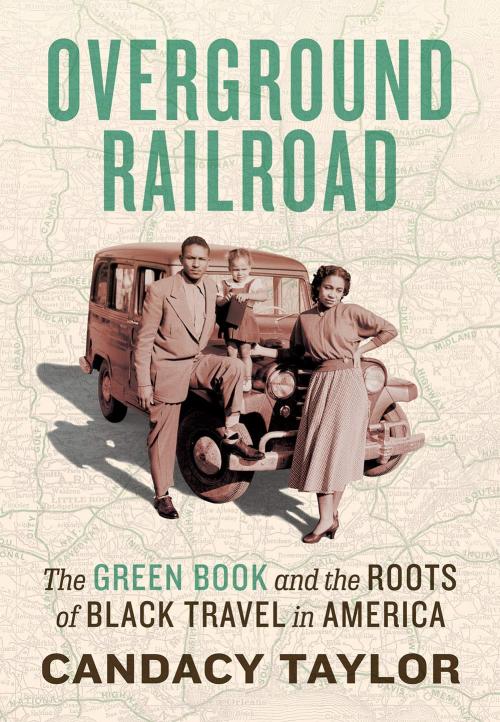

Disqus Comments